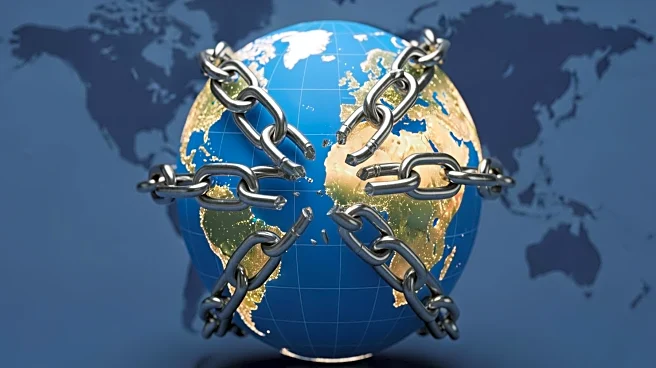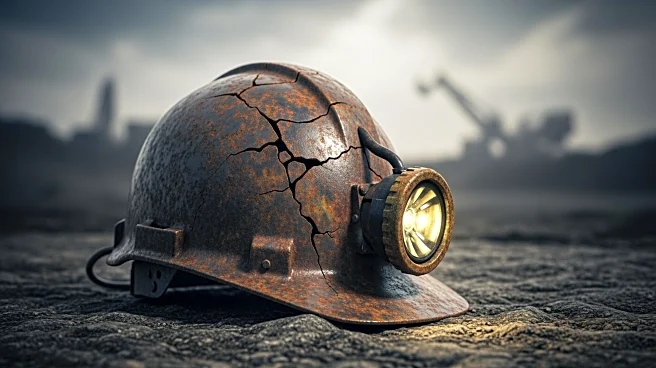What's Happening?
In Mali, some fuel stations in the capital, Bamako, have reopened after being closed due to a blockade imposed by an al-Qaida affiliate. This blockade has severely impacted the nation, with over 100 fuel tankers
destroyed and several people killed or taken hostage. Schools in Bamako have also reopened for the first time since the blockade began two weeks ago. The African Union has called for urgent international action to combat extremism in Mali, condemning the abduction of three Egyptian nationals. The situation remains tense, with many petrol stations still closed and concerns about the sustainability of fuel supplies.
Why It's Important?
The blockade in Mali highlights the ongoing threat of extremism in the region, affecting not only local communities but also international relations. The disruption of fuel supplies and the closure of schools underscore the broader impact on daily life and economic stability. The call for international action by the African Union suggests a need for a coordinated response to address security challenges in Mali. The situation also poses risks for foreign nationals, prompting countries like France and the U.S. to advise their citizens to leave Mali. This development could influence international policy and aid strategies in West Africa.
What's Next?
The international community may respond to the African Union's call for action, potentially leading to increased military or diplomatic efforts to stabilize the region. The reopening of fuel stations and schools is a positive sign, but the ongoing threat from militants means that the situation remains volatile. Further attacks or blockades could prompt additional evacuations or international interventions. Monitoring the response from major stakeholders, including regional governments and international organizations, will be crucial in assessing the next steps in addressing the crisis in Mali.








